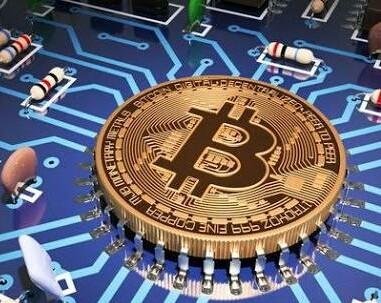The Bitcoin in Islamic A Law

Before explaining the jurisprudence of Bitcoin related, first explain what is Bitcoin so that the picture of Bitcoin becomes clear.
Bitcoin is a digital money issued by a party other than the monetary authority acquired by means of purchase, transfer of reward, or mining (the process of generating a new amount of Bitcoin, involving complex mathematical processes). If a simple illustration is made, in a bazaar, the committee provides coupons to the public to facilitate the purchase of goods by the community. With the coupon, people trade with goods. After the goods run out, the coupons are still available, then the coupon is traded. The coupon in the illustration is like Bitcoin.
Bitcoin has no underlying assets, very volatile, unpredictable and very unnatural rises. Bitcoin is also not recognized as a legitimate payment instrument by the authority and transactions person to person without an official brokerage agency.
Based on the description, it can be concluded that Bitcoin is not money because it has not met two criteria of money (accepted by the public and published by the authority), as the definition of money.
"Naqd (money) is anything that becomes a medium of exchange and is accepted in general ...." (Sulaiman al-Mani, Buhuts fi al-Iqtishad al-Islami). Also another notion of money, "Naqd (money) is in accordance with the price made by society either consisting of metal or printed paper as well as from other materials published by financial institutions holding the authority." (Rawwas Qal'ah Ji, al-Mu ' amalat al-Maliyah).
In Act No. 7 of 2011 concerning Currency affirms, "And every transaction that has a purpose of payment or other obligations to be fulfilled with money or other financial transactions conducted in the territory of the Unitary State of the Republic of Indonesia shall use rupiah."
Secondly, Bitcoin is loaded with uncertainty and speculation because it has no underlying assets, very volatile exchange rates, and very unnatural rise. Bitcoin is only the numbers traded.
In fiqh, the vagueness is called a forbidden garar based on the hadith of the Prophet SAW, "Rasulullah SAW forbids the sale of a gaarar." (Muslim from Abu Hurairah / 'Umdatul Qari', 11/264). The AAOIFI Shari'ah standard No. 31 on Garar explains that the forbidden obscurity is severe uncertainty (gharar fahisy).
In fiqh, the speculation is called maisir as affirmed by Ibn Taimiyah in Majmu fatawa: Risk is divided into two, the first is the business risk, that is, a person who buys goods for the purpose of reselling it with a certain profit rate and he trusts Allah for it. The second is maisir which means eating other people's treasures in a vanity way. This speculation is forbidden by Allah and His Messenger.
Indonesia banking as the authority has also concluded that virtual currency ownership (among them Bitcoin) is very risky and full of speculation because no authority is responsible and there is no official administrator. In addition, because there is no underlying asset underlying the virtual currency price and the trade value is very volatile, thus vulnerable to the risk of inflation.
Thus, Bitcoin is not a legal means of payment, it is not protected by the authorities, so there is no consumer protection. Similarly, Bitcoin is very risky and loaded with speculation because without underlying assets, the price is not a bus